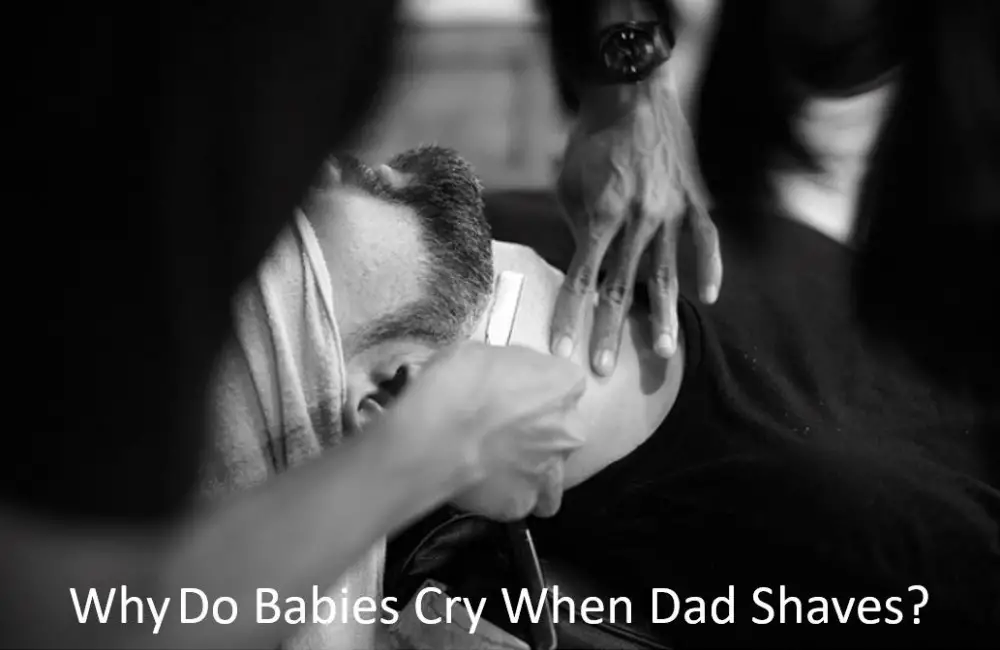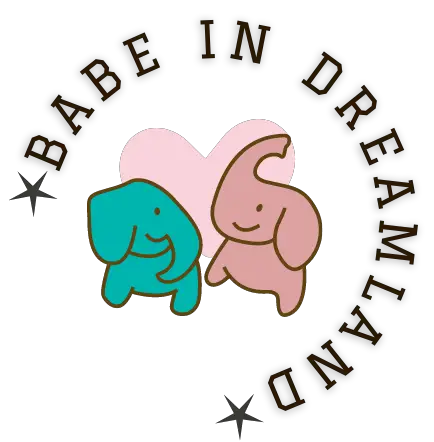Why Do Babies Cry When Dad Shaves?

Beards and moustaches are relatively prominent facial hair features.
Any alteration to them will result in a striking change of looks and elicit a wide range of responses. These may include a surprised wife and a shocked, confused and perhaps terrified baby.
And naturally, it will take them some time to get used to these new facial features…
But why are babies reacting with a cry when they see the clean-shaven face of their daddy?
Well, read on to find it out!
Why Do Babies Cry When Dad Shaves?
Shaving or having a haircut is a drastic alteration of daddy’s look. This sudden and unexpected change may cause significant confusion and distress in their babies, who can’t recognise their father. Furthermore, babies don’t cope well with changes-they thrive on repetition and routine. As a result, any change to their parents’ appearance will be unexpected, unwanted, and unappreciated.
Daddy Looks Like Stranger
So, daddy decided to change his looks and no longer look like himself.
But his eyes are the same, his ears are the same, his voice is the same… What is going on?! Is it my daddy or not?!
The reaction of babies seeing their daddy without a beard for the first-time ranges from disbelief, astonishment, confusion and fright…
Something like the kiddies in the videos below:
In The Genes: Babies Reacting To Dads Shaving
https://www.facebook.com/watch/?v=456283705555374
Baby starts crying when he sees his father with shaved head
Naturally, the spontaneous response from the baby is to cry.
Simply because they don’t recognise their daddy!
Daddy looks like a stranger.
Plain and simple.
The “old” daddy that the baby knew and trusted – is out of a sudden – gone. The trust is now broken and needs to be rebuilt again.
The baby will need the time, encouragement, and reassurance to understand that this is the “new” version of daddy.
That’s the new normal and should no longer be frightening.
*** FUN FACT: Did you know that according to the research on face perception carried out in Australia, babies and young kids actually dislike men with beards and find them really unattractive?
They do, however, associate beards with older age and perceive bearded men as stronger than their clean-shaven counterparts.
It is around puberty when these preferences change – when they start warming to beards.
One exception was kiddies with bearded fathers. It seemed that they judged bearded men more positively and felt comfortable around them.
Babies Don’t Like Change
The clean-shaven face of their dad, who previously had a full beard, represents a major change in their appearance.
The key word here is “change”.
Babies don’t like it.
Change is undesired and unwelcome.
Change is scary and confusing.
That’s because babies have a limited brain capacity to cope with changes. Furthermore, babies are incapable of managing their emotions and regulating themselves.
And this trigger strong responses associated with “new” or “unknown” – expressed by crying. That’s how they communicate their discomfort and ask for support.
So, at this early age, babies solely rely on their parents to handle and process changes and to comfort them.
Babies thrive on predictability, routine, and consistency, and when things stay the same in general. Because that’s comfort – knowing what to expect.
And I would venture to say that it is not only true for babies and children before age five – but for adults too. After all, humans are creatures of habits and routines…
Related Post ===> How To Help My Baby Sleep Better?
Final Few Lines
It may be hilarious, if not slightly cruel, to see the babies’ reactions to their dad’s naked chin.
Their reaction is priceless. The surprise, shock, confusion, and slight terror…
Because they don’t recognise who this shaved person is.
Well, you can spare your baby the excitement if you don’t wear a beard in the first place.
Plus, babies aren’t too keen on facial hair anyway…
